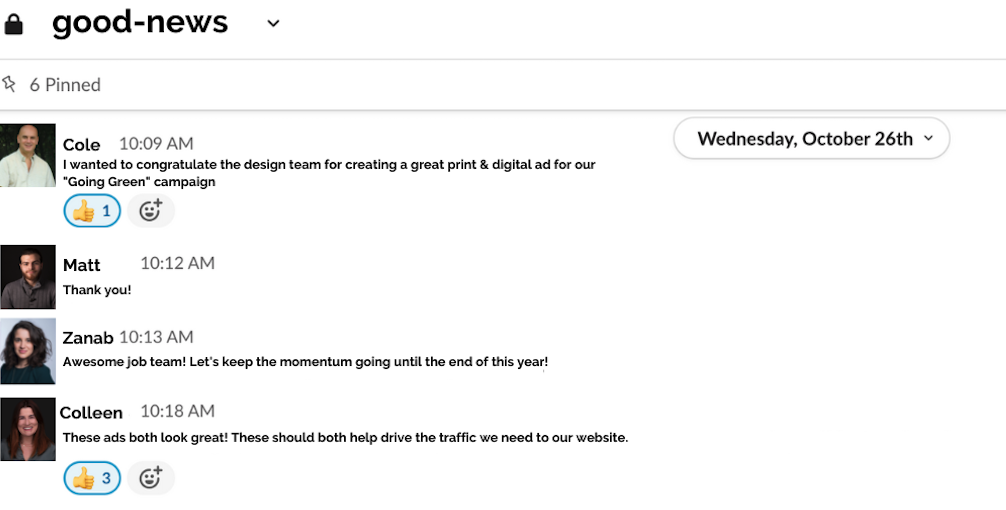Promoting team-building activities, creating a culture of recognition, and developing an open-door communication policy—during periods of revenue growth and recruitment booms, these practices are seen as essential, but other factors are also driving positive employee morale. Employees might already feel confident and motivated in their roles due to energetic leadership, new team members, and an upbeat work environment.
Yet, in times of economic uncertainty, employees no longer display the same level of satisfaction toward their positions or places of employment. Instead, fear, doubt, and anxiety are lingering thoughts that often dominate an employee’s mindset, making it difficult for employees to stay focused.
Despite economic uncertainty, employee morale should not suffer. When team leaders take it upon themselves to boost morale in the workplace, employees will remain confident in their abilities, retain motivation to perform at their best, and maintain a positive outlook at work.
When it comes to boosting morale, there is no one silver bullet that will work for every organization, but some highly efficient methods can help improve how your employees feel about your company and their roles.
What is Employee Morale?
Employee morale is a combination of an employee’s outlook, attitude, and feelings. Do they enjoy working with their colleagues? Are they motivated by the work they do? Do they view their employer in a favourable manner?
When morale is high, employee engagement also improves. When an employee embodies a positive attitude and outlook, they will feel more of a deep connection to their colleagues, role, and employer.
How To Boost Employee Morale
1) Team building events
Through team-building events, employees can build genuine connections with one another that make them feel heard, validated, and respected. There can never be enough emphasis placed on the importance of human connection. Building interpersonal relationships improves an individual’s overall well-being, resulting in increased productivity in their day-to-day roles and helping them maintain a positive outlook.
Team building events can include:
Volunteer days
Planning a volunteer day can help boost morale by giving employees a chance to do something that is personally fulfilling while connecting with colleagues. From building homes with Habitat for Humanity to serving meals at a local soup kitchen, there are a number of different ways that employees can give back through volunteer work.
The process leading up to a volunteer day can last several weeks. Rather than the team leader taking on all of the work, employees can be involved in the planning process. Have your team members help you select a cause, choose a volunteer day activity, and plan out the fine details in between. Not only do employees want to feel a part of something greater; they want to partake in employee-led CSR programs that let them discover social causes and charitable giving opportunities independently.
Trivia nights
Why not spark some friendly competition between teams with a trivia night? This can be done virtually or in person, depending on preference.
For example, host a Jeopardy-style trivia night. Connect with other team leaders in your company and bring your teams together. Your organization can have one moderator host the trivia night, where one employee from each team competes against another to answer each question correctly and quickly. Additionally, prizes can be awarded to the winning team to increase employee engagement!
Team fundraisers
Summer BBQs, bake sales, and office potlucks are all great examples of team fundraisers. Not only do they help to boost enthusiasm, but they also provide a chance for team members to bond over a common cause.
Similar to planning a volunteer day, encourage your team members to become involved in planning a company-wide fundraiser. For instance, develop a poll where you ask each employee, “What fundraiser ideas should we execute?” Then, give them three or four options to choose from. Once an idea is selected for a fundraiser, you can send a follow-up email to employees letting them know which idea won, along with the event details.
2) Create a culture of recognition
Your team members want to feel valued, appreciated, and respected by their workplace, all while feeling like the work they do is contributing to the growth of a company.
In times of economic uncertainty, employees may be asking themselves, “Does my work still matter?” or “Am I still an essential member of my company?” Regardless of your company’s present state of profitability, ensure that your employees are recognized for all they have contributed (and the work they continue to put forth).
You can recognize your employees by:
Starting a workplace recognition channel
Create a Slack channel (or a channel on any other internal communication tool you use) that is dedicated solely to recognizing your team members for their hard work, dedication, and commitment. A dedicated channel also opens the floor up for other employees to give praise to their colleagues for a job well done.

Share employee successes on social media
Beyond internal communication, amplify your team members’ accomplishments and share them with the public on your company’s (or your personal) social media channels. This means taking the time to write a quick LinkedIn post or tweet highlighting an employee’s recent win. It’s a great way to show your followers the amazing work your team is doing and gives your employees a sense of pride.
Let’s say you just organized a company-wide volunteer day, and 60% of your team members participated. If you took photos or videos during the volunteer day, share those on social media with a quick caption of how your employees’ efforts contributed to bettering your local community.
Host quarterly team celebration days
Whether in person or virtually, make an effort to unite your entire team together and celebrate each other’s accomplishments face-to-face. Make sure these team celebration days are frequent and consistent so that employees never forget their value.
A company-wide picnic, virtual cooking class, or paint nite are all enjoyable activities where you can actively communicate with your employees, expressing your appreciation for their efforts. A team celebration day each quarter will also help to offset an employee’s unsettling feelings, as one day away from their daily responsibilities will be spent with their colleagues!
3) Create an open-door communication policy
During periods of economic uncertainty, employees might be concerned about their role, the state of their company, and macroeconomic conditions. Team leaders can do their best to alleviate some of the stress their team members may be feeling by implementing an open-door communication policy.
Especially in times when employees might be doubting their worth, fearing that a potential recession might diminish their appeal to potential employers, team leaders can step up where possible and create an environment that instills merit within employees.
You can create an open-door communication policy by:
Identifying topics that are available to discuss
Team leaders don’t have to disclose confidential information on the company’s state if they aren’t comfortable or able to. However, when fostering an open-door policy, keep as many topics as possible open for discussion.
Leaders should encourage team members to discuss their challenges if they notice them lacking motivation, losing productivity, or struggling to collaborate so both parties can find an appropriate solution together.
Allowing employees to speak confidentially
A confidentiality agreement should be put in place, in which any information that an employee brings forth to their team leader stays between them. Employees may be vulnerable in times of economic uncertainty. While you help them look for ways to uplift their confidence and satisfaction within the workplace, ensure all information they come to you with doesn’t get repeated.
Providing a space for group communication
Some employees might not want to schedule a one-on-one with their team leader to discuss their challenges due to intimidation. However, discussing team issues in a group setting allows employees to openly express their perspectives and concerns while connecting with others who might also have similar feelings.
Even though your organization may be experiencing a slowdown in revenue, a decrease in demand, and scaled-back operations due to economic uncertainty, morale does not need to be diminished.
Rather, morale should be boosted where employees receive frequent recognition by their leaders (for even the small successes), are invited to communicate their feelings in a welcoming environment, and are encouraged to establish genuine human connections.
These feelings of appreciation, belonging, and contentment are what will continue to drive your employees to stay with your organization during the not-so-terrific times.



